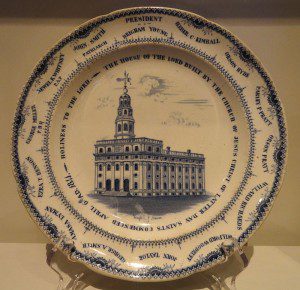
Yesterday, I posted an item — part of a larger series of posts indicating his sincerity — to illustrate Joseph Smith’s apparent lack of affectation.
This was much the same impression that his contemporaries had of Joseph, even late in his career. “He is a man that you could not help liking as a man,” George W. Taggart wrote from Nauvoo to his three non-Mormon brothers in the fall of 1843, “setting aside the religious prejudice which the world has raised against him. . . . Neither is he puffed up with his greatness as many suppose but on the contrary is familiar with any decent man and is ready to talk upon any subject that anyone wishes.”[1] The perceptive and highly intelligent George Q. Cannon remembered him as “always gentle and good-natured,” “considerate and just.”[2] In 1843, Joseph Smith was head of a large and rapidly growing church, lieutenant general in the Illinois militia, and the dominant figure in what may at the time have been the state’s largest city. Yet he was wholly unpretentious. “When we all had a social chat,” Jonah Ball wrote earlier that year, “I found Joseph familiar in conversation, easy, and unassuming. I found no sycophancy.” And the Prophet evidently did not demand formality in his presence, tolerating behavior by others that, by the standards of the time, could have been taken as disrespectful to him. “There are those,” Ball said, “that came in or went out not even taking their hats or caps off their heads.” Concluding, Ball reported that “he is what the Mormons represent him to be and the stories about him are false.”[3]
[1] Susannah Taggart and George W. Taggart, letter of 6 September and 10 September 1843 to Albert Taggart, Samuel W. Taggart, and Henry C. Taggart. The relevant text is given on pages 171 and 173 of Ronald O. Barney, “’A Man That You Could Not Help Likeing’: Joseph Smith and Nauvoo Portrayed in a Letter by Susannah and George W. Taggart,” BYU Studies 40/2 (2001): 165-179. I have standardized the spelling and punctuation.
[2] Cannon, Life of Joseph Smith the Prophet, 343.
[3] Jonah Randolph Ball, letter of 15 January 1843 to “Dear Brother [Harvey Howard] and Sister.” Cited in Barney, “’A Man That You Could Not Help Likeing,’” 178 note 41. I have standardized the spelling and punctuation.
Posted from Nauvoo, Illinois











